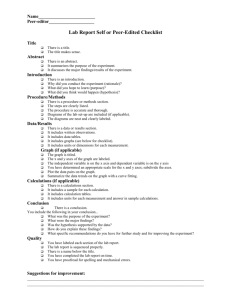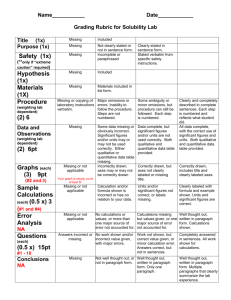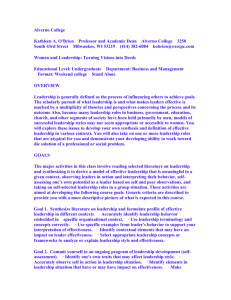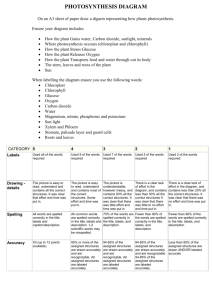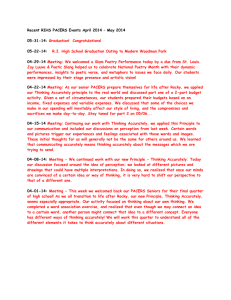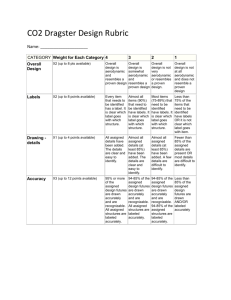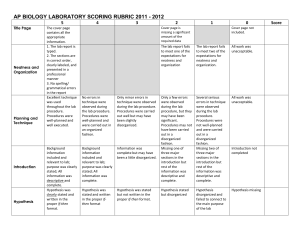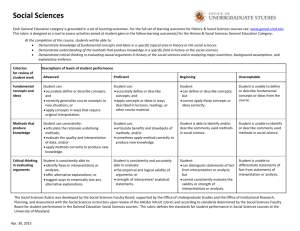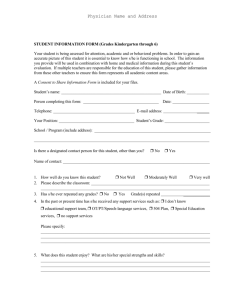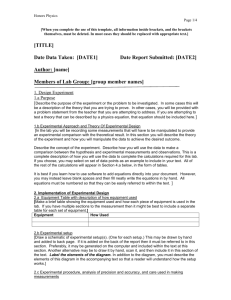Physics Lab Report Format & Scoring Rubric
advertisement
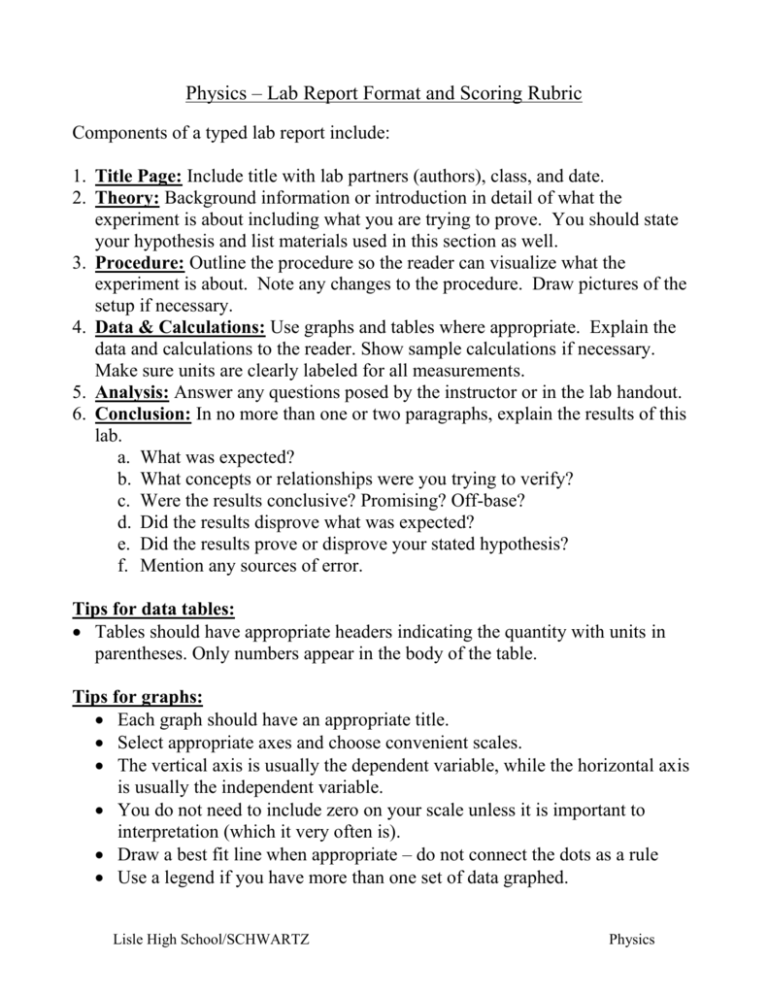
Physics – Lab Report Format and Scoring Rubric Components of a typed lab report include: 1. Title Page: Include title with lab partners (authors), class, and date. 2. Theory: Background information or introduction in detail of what the experiment is about including what you are trying to prove. You should state your hypothesis and list materials used in this section as well. 3. Procedure: Outline the procedure so the reader can visualize what the experiment is about. Note any changes to the procedure. Draw pictures of the setup if necessary. 4. Data & Calculations: Use graphs and tables where appropriate. Explain the data and calculations to the reader. Show sample calculations if necessary. Make sure units are clearly labeled for all measurements. 5. Analysis: Answer any questions posed by the instructor or in the lab handout. 6. Conclusion: In no more than one or two paragraphs, explain the results of this lab. a. What was expected? b. What concepts or relationships were you trying to verify? c. Were the results conclusive? Promising? Off-base? d. Did the results disprove what was expected? e. Did the results prove or disprove your stated hypothesis? f. Mention any sources of error. Tips for data tables: Tables should have appropriate headers indicating the quantity with units in parentheses. Only numbers appear in the body of the table. Tips for graphs: Each graph should have an appropriate title. Select appropriate axes and choose convenient scales. The vertical axis is usually the dependent variable, while the horizontal axis is usually the independent variable. You do not need to include zero on your scale unless it is important to interpretation (which it very often is). Draw a best fit line when appropriate – do not connect the dots as a rule Use a legend if you have more than one set of data graphed. Lisle High School/SCHWARTZ Physics Components of the Scoring Rubric include: Experienced 5 points Procedure was well-planned and wellexecuted Competent 4 points Procedures were wellplanned and carried out in an organized fashion Transitional 2 points Technique Errors caused some significant deviations in results; some preparation of procedure observed Data & Accurately and Accurately and Recorded but Some data not Observations completely completely with some data recorded; little recorded recorded with incomplete concrete minor errors information collected Calculations Performed Performed Performed Minor errors in and Analysis clearly and accurately but accurately, but calculations; accurately with work not some minor no units were correct units shown errors in provided calculation Graphs If necessary, Constructed were constructed accurately but accurately and axes not clearly labeled labeled correctly or title given Recognizing Understanding Some Understanding Understanding Connections was expressed understanding was was very between was given occasionally weak; observations and between weak, but only connections related physics observations in a few places were not concepts and physics explained well concepts Answers to Written Written Questions correctly and correctly but a accurately; few errors in thorough explanation explanation given x x Lisle High School/SCHWARTZ Intermediate 3 points Minor errors in procedure were observed; a little bit disorganized x x Beginning 1 point Procedure was not followed closely; many procedural mistakes seen Very little or no data collected; sloppy and unorganized Calculations were performed incorrectly Constructed adequately but axes not labeled correctly or title given Errors in logic were made in the report; unclear and disorganized Many questions answered incorrectly or poorly written Physics
